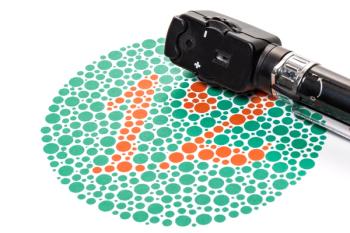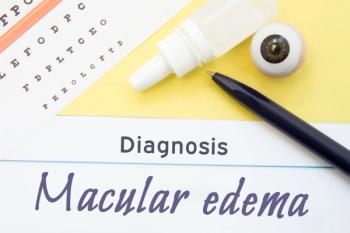
Study Shows Patients Prefer Port Delivery of Ranibizumab
Those with age-related macular degeneration like the port delivery system for ranibizumab because it requires fewer treatments and there is less discomfort.
The implanted port delivery system for ranibizumab is preferred by more patients with age-related macular degeneration (AMD) than those receiving ranibizumab through an injection, but both delivery methods have high patient satisfaction, according to the findings of a recent study published in
Investigators, led Margaret A. Chang, M.D., an ophthalmologist at Retinal Consultants Group, found that with the most common reasons for preferring the port delivery system include the need for fewer treatments, less discomfort, and less worry.
Genentech’s Lucentis (ranibizumab) was first approved as an injection in 2006 to treat wet, or neovascular, AMD, and then
In October 2021, the FDA
The approval was based on positive results from the phase 3 Archway study primary analysis, which showed wet AMD patients treated with Susvimo achieved and maintained vision gains equivalent to monthly ranibizumab injections at weeks 36 and 40 of treatment. More than 98% of patients could go six months before their first refill of ranibizumab.
Investigators in the JAMA Ophthalmology study used the PDS Patient Preference Questionnaire (PPPQ), to measure patient preference in the port delivery system arm of the Archway study at week 40 over previous intravitreal injections. Treatment satisfaction was measured using the Macular Disease Treatment Satisfaction Questionnaire in the port delivery system and intravitreal injection arms at week 40.
Investigators found that differences in overall treatment satisfaction scores were minimal for the PDS and intravitreal injection arms. In the port delivery system arm, almost all patients preferred treatment via the port system (93.2%) versus previous intravitreal injections (1.3%), including 73.5% with a very strong preference for the port delivery of ranibizumab.
“Patient-reported outcome measures provide a unique opportunity to aid clinical development because they capture aspects of treatment that are important to patients and generate standardized outcomes that can be used to inform treatment decision-making. However, there is a need for specific and validated instruments in patients with neovascular AMD to accurately capture the patient’s voice,” investigators wrote.
One limitation, the investigators said, was that the instrument used, the PDS Patient Preference Questionnaire, was developed specifically to evaluate patients at 40 weeks in the clinical trial. Additional studies, they said, are required to evaluate patient preference with longer-term follow-up and in a clinical practice setting.
Additionally, patients in the port delivery system arm were required to recall previous experience with the injection therapy, which could result in recall bias.
This research was sponsored by Genentech.
Newsletter
Get the latest industry news, event updates, and more from Managed healthcare Executive.























